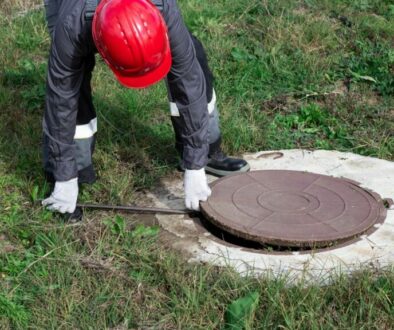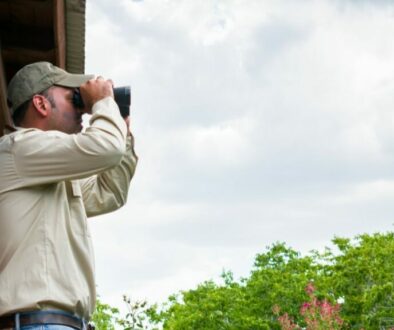How To Become A Border Patrol Agent?
Border patrol agents are responsible for protecting the U.S. borders by detecting and preventing the illegal entry of people, weapons, drugs, and contraband. Becoming a border patrol agent requires more than just a passion for law enforcement. It requires a unique set of skills, rigorous training, and a strong sense of commitment to serving the country. In this article, we will take a closer look at the steps to become a border patrol agent, the skills needed, and the benefits of working as one.
Steps To Becoming A Border Patrol Agent
If you are interested in becoming a border patrol agent, then you should follow these steps:
- Meet the Eligibility Requirements
The requirements for becoming a border patrol agent include being a U.S citizen, being younger than 40 years old, having a valid driver’s license, and passing a thorough background check. In addition to these basic requirements, candidates are expected to have a clean criminal record, a high school diploma or GED, and a good credit history. Candidates with prior military or law enforcement experience may have an advantage in the application process.
- Pass the Border Patrol Entrance Exam
The Border Patrol entrance exam is a rigorous test that assesses the cognitive abilities, reasoning skills, and aptitude of aspiring border patrol agents. The exam evaluates the candidate’s ability to learn, apply critical thinking, and problem-solving skills. The exam is divided into four sections: logical reasoning, Spanish language proficiency, reading comprehension, and an artificial language test. Candidates who pass the exam move on to the next stage of the application process.
- Complete the Border Patrol Application Process
The application process involves filling out an online application, submitting personal information and documents, and passing several medical and physical fitness tests. These tests are necessary to ensure that the candidates are physically and mentally suitable for the job. Candidates must also pass a drug test and a polygraph examination. The application process can take several months to complete, and candidates are advised to be patient and thorough in their responses.
- Attend the Border Patrol Academy
After completing the application process and passing the exams, candidates are required to attend a rigorous 19-week training program at the Border Patrol Academy in Artesia, New Mexico. During the academy training, aspiring agents learn critical regulatory procedures, law enforcement protocols, and physical fitness training. The training is intense and physically demanding, and candidates must be prepared to work hard and follow strict guidelines. The academy also provides training in firearms, driving, and emergency response, as well as cultural awareness and Spanish language instruction.
Overall, becoming a border patrol agent requires dedication, hard work, and a commitment to serving the country. The job can be physically and emotionally demanding, but it is also rewarding and provides opportunities for career advancement. Border patrol agents play a critical role in protecting the country’s borders and ensuring the safety of its citizens.
Skills Needed For Becoming A Border Patrol Agent
Due to the nature of the job, border patrol agents need to possess specific skills to be successful in their careers. Here are some skills you must acquire to become a border patrol agent:
Critical-Thinking And Analytical Skills
As a border patrol agent, you will have to analyze situations, evaluate evidence, and make quick decisions based on your observations. Critical-thinking and analytical abilities are essential to identifying and preventing potential threats to national security.
For example, if you are patrolling the border and notice a group of individuals crossing the border illegally, you must quickly analyze the situation to determine the appropriate course of action. You must evaluate the evidence available to you, such as the number of individuals, their behavior, and the time of day, to make an informed decision.
Additionally, critical-thinking and analytical skills are crucial when investigating crimes related to border security. You must be able to connect the dots between different pieces of information to identify potential suspects and prevent future criminal activity.
Communication Skills
Border patrol agents must have excellent communication skills, including the ability to speak, write, read, and understand multiple languages. This skill will help in understanding suspects, assisting victims, and communicating with fellow agents and other law enforcement agencies.
For example, if you encounter a group of individuals who do not speak English, you must be able to communicate with them in their language to understand their intentions and determine if they are a threat to national security. Additionally, you must be able to write detailed reports and communicate effectively with other law enforcement agencies to coordinate efforts to prevent criminal activity.
Physical Fitness and Endurance
Border patrol agents must be physically fit, with the ability to hike, climb, and run for long periods without getting tired. The job requires a lot of physical activity, and agents must be able to perform strenuous activities without compromising their safety.
For example, if you are patrolling the border on foot, you may have to hike through rough terrain, climb over fences or walls, and run after suspects. You must be able to do all of this while carrying your equipment and maintaining situational awareness.
Physical fitness is also essential for the safety of the agent and those around them. If an agent is not physically fit, they may not be able to respond quickly in an emergency situation, putting themselves and others at risk.
Becoming a border patrol agent requires a unique set of skills, including critical-thinking and analytical abilities, communication skills, and physical fitness and endurance. These skills are essential for ensuring national security and protecting the safety of those living in the United States.
What is a Border Patrol Agent?
A border patrol agent is a crucial component of the United States’ national security and law enforcement efforts. These federal law enforcement agents work tirelessly to secure and protect the country’s land borders against illegal entry, smuggling, and other criminal activities.
Border patrol agents are employed by the United States Customs and Border Protection (CBP) agency, which is a branch of the Department of Homeland Security. They are responsible for patrolling the nation’s borders, which span over 7,000 miles, and ensuring that no unauthorized individuals or goods enter the country.
The job of a border patrol agent is a challenging one that requires a high level of physical fitness, mental acuity, and emotional resilience. Agents must be prepared to work in a variety of environments, from deserts to mountains to urban areas, and must be able to adapt quickly to changing situations.
Border patrol agents are trained to detect and prevent illegal entry into the country through a variety of means, including surveillance, intelligence gathering, and physical barriers. They also work to apprehend criminals and terrorists attempting to enter the United States illegally, and may be called upon to assist in other law enforcement efforts, such as drug interdiction and human trafficking investigations.
In addition to their law enforcement duties, border patrol agents are often called upon to provide humanitarian assistance to individuals in need. This may include rescuing individuals lost in the desert, providing medical care to those in need, and assisting with the processing of asylum seekers and refugees.
Overall, the work of a border patrol agent is vital to the safety and security of the United States. These dedicated law enforcement professionals work tirelessly to protect our borders and ensure that our country remains a safe and secure place for all who call it home.
The Benefits of Working as a Border Patrol Agent
Besides the sense of duty and fulfillment that comes with being a border patrol agent, there are other significant perks of working in this field. These benefits include:
Job Security
Border patrol agents enjoy unparalleled job security, and their employment is guaranteed as long as they meet their responsibilities and maintain a high level of performance. This job security can provide peace of mind and stability for agents and their families, allowing them to focus on their duties without worrying about job loss or insecurity.
Health and Retirement Benefits
Border patrol agents receive comprehensive health and retirement benefits that include medical, dental, and vision coverage, life insurance, and retirement savings plans, among others. These benefits can help agents and their families stay healthy and financially secure, even after retirement.
Moreover, border patrol agents have access to specialized healthcare services that cater to their unique needs, such as vaccinations and medical screenings for infectious diseases that they may encounter while on duty.
Paid Time Off
Border patrol agents enjoy generous paid time off that includes annual and sick leave, holiday pay, and additional compensation for overtime and extra work. This time off can help agents recharge and maintain a healthy work-life balance, which is crucial for their well-being and job performance.
Furthermore, border patrol agents have access to flexible work schedules, which can accommodate their personal needs and preferences, such as childcare or education.
Advancement Opportunities
Border patrol agents have vast opportunities for career advancement, including promotion to supervisory positions, specialized training, and opportunities to work in other law enforcement agencies and departments. These opportunities can help agents develop new skills, expand their knowledge, and take on new challenges, which can lead to greater job satisfaction and fulfillment.
Additionally, border patrol agents work in a dynamic and diverse environment, where they can interact with people from different cultures and backgrounds, and learn about their customs and traditions.
Becoming a border patrol agent is a challenging but rewarding career choice. It requires a unique set of skills, rigorous training, and a strong commitment to serving the country. If you are interested in pursuing this career path, following the steps outlined above, and developing the necessary skills, you could join this elite group of law enforcement professionals and contribute to protecting the nation’s borders.




